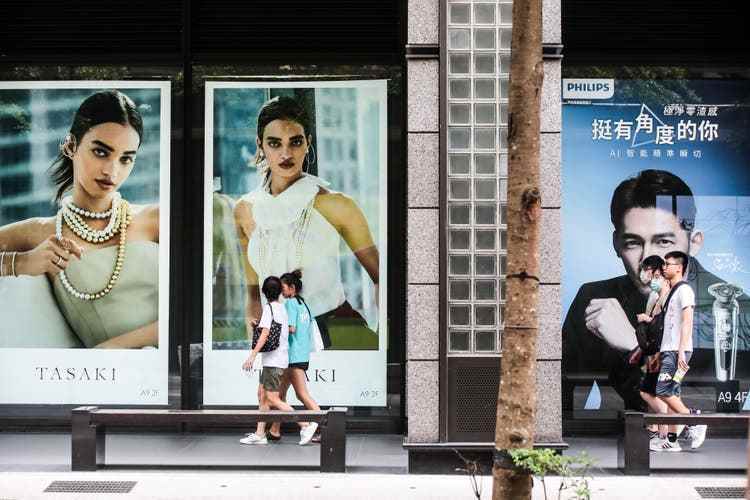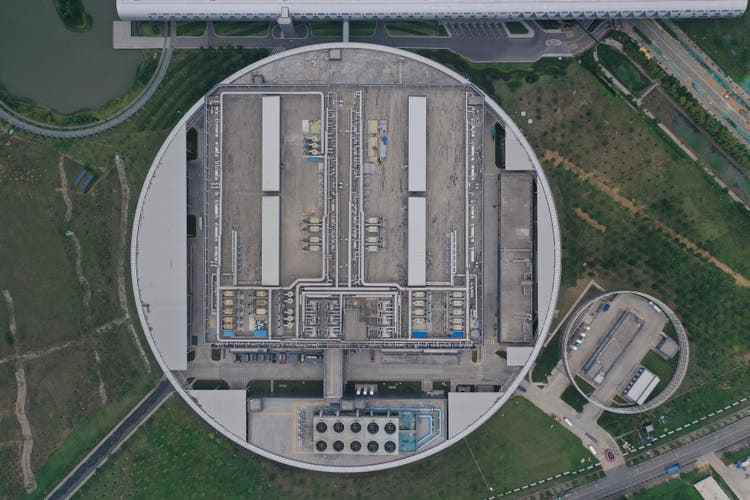So far, Beijing has only imposed sanctions on unimportant areas. Three experts explain why – and how high the risk is that China will take Taiwan hostage economically.
Taiwan built its prosperity primarily through its economic relationship with China.
In the new Taiwan crisis, China is not only demonstrating military strength to small Taiwan. Even before Nancy Pelosi, the speaker of the US House of Representatives, landed on the island off the coast of China last week against Beijing’s massive protests and the biggest maneuvers in the Taiwan Strait had begun, the communist government was already firing with the first small economic sanctions.
Chinese customs suspended imports from more than 100 food companies under the pretext of lack of permits. A short time later, the export of natural sand was stopped. From an economic point of view, both are just tiny pinpricks. But the symbolic meaning is clear: “China could unquestionably put severe economic pressure on Taiwan,” explains Max Zenglein, chief economist at the Berlin China think tank Mercator Institute for China Studies (Merics).

Max Zenglein, Chief Economist Mercator Institute for China Studies (Merics)
In fact, no other country in the world is as closely intertwined with China’s economy as Taiwan’s. Exports from the island, which is the world’s most important manufacturer of semiconductors, account for 70 percent of economic output. In 2021 alone, they rose by 26 percent to $446 billion. And of that total, China and Hong Kong accounted for 42 percent. Semiconductors made up more than 60 percent of this.
For Zenglein, however, the high dependency on exports does not adequately express the situation: “China is more important for Taiwan than the export data suggest.” While there is little Chinese investment on the island due to restrictions in Taiwan, Taiwanese have been among the first to invest in China – and massively so.
Taiwan is one of the largest investors in China
According to their government, Taiwanese companies have invested US$193 billion in the mainland between 1991 and 2021, significantly more than Germany, which has almost three times the population. These include corporations such as the contract manufacturer Foxconn, which supplies the world with smartphones and other electronics from its Chinese plants. “But China also plays a particularly important role for small and medium-sized companies,” says Zenglein.
Taiwan’s bet on the mainland seems a bit paradoxical given the historical situation. After the communist victory in the civil war and the retreat of the ROC leadership to the island, there was no trade for decades. And now Beijing is underlining that it still sees Taiwan as part of the People’s Republic, which should be brought back into the Middle Kingdom by force if necessary.
At first glance, it is even more astonishing that China’s traditional policy of economic sanctions has so far only attacked marginal areas, and not Taiwan’s lifelines such as the semiconductor industry or mechanical engineering. From 2018 tourism was gradually stopped, in 2021 the export of pineapples and apples. “These are all areas that don’t hurt Taiwan much and neither do China,” says the German China expert.

The Taiwanese economy has so far been largely spared from Chinese sanctions.
For him it is therefore an encouraging sign that China has not yet tightened economic sanctions in addition to the military situation or put pressure on Taiwanese companies and the almost one million Taiwanese in China. “If Beijing harasses Taiwanese companies in China or sanctions more important product groups, the next level of escalation would have been reached.”
China is dependent on high-tech imports
The reason for China’s reluctance to implement economic sanctions so far is that China’s domestic export production still needs Taiwan as a supplier. Iris Pang, chief economist at the major Dutch bank ING in Hong Kong, believes that China’s survival does not necessarily depend on goods from the island. “But semiconductors are necessary for industry, especially electronics production and re-exports abroad.”

Iris Pang, Chief Economist ING Hong Kong
This is due to Taiwan’s large role in the global high-tech supply chain, she explains, particularly in the semiconductor industry. According to Taiwanese market consultant TrendForce, the semiconductor giant TSMC and other companies in the industry combined accounted for 26 percent of the entire global chip industry’s revenue.
Taiwan is also at the forefront when it comes to the design, packaging and testing of chips, not to mention contract manufacturing: 64 percent of the foundry market is firmly in Taiwanese hands, and for chips with structures of less than ten nanometers it is even more than 90 percent.
So far, China’s plan to build up a leading semiconductor industry itself has not changed this. “Many preliminary products from Taiwan cannot yet be replaced because China tends to cover the lower parts of the technology supply chain, while Taiwanese companies keep their high-tech at home,” explains Pang.
Beijing can only afford sanctions on raw materials to Taiwan if the leadership is willing to pay an economic price itself. “It’s a very complex, interdependent supply chain,” says the economist. Or to put it another way: Taiwan still enjoys grandfathering due to globalization.
Taiwan’s government wants to open up other markets
However, the government of President Tsai Ing-wen does not want to trust the tense economic peace with China. In 2016, she launched the “New Southbound Strategy,” in which the government encourages investment by Taiwanese companies in South and Southeast Asia. Adding to this is an attempt to reduce over-reliance on semiconductors and electronics, explains Kristy Hsu, director of Southeast Asia relations at the Chung Hua Institution for Economic Research (CIER). Because Taiwan is in an uncomfortable situation – and not just because of China, but also because of the trade war between its large neighbor and its protective partner, the USA.

Taiwan companies are important investors in mainland China – for example in the TSMC chip factory in Nanjing.
“Alongside China’s weaponization of trade, we are seeing other major countries trying to develop their own supply chain through generous subsidies, perhaps even protectionism,” Hsu said. This increases the pressure on TSMC and other companies to build state-of-the-art plants overseas. There are also restrictions on exports of chips to China from the USA that are manufactured with US patents or preliminary products. Further export controls may follow.
However, Taiwan faces a dilemma: “The demand from China for our products is so strong that we cannot simply withdraw from the market,” explains the trade expert. In addition, it is difficult for Taiwan to conclude free trade agreements itself because of China’s influence on other countries. Nevertheless, there are first successes.

Kristy Hsu, Director of Southeast Asia Relations at the Chung Hua Institution for Economic Research (CIER)
In 2021, Taiwan’s investments in Southeast Asia surpassed those in China for the first time. With the growing US-China conflict, the movement could gain momentum, Hsu believes. “A more important factor than subsidies are the demands from corporate customers in Europe and the USA that Taiwanese companies diversify their supply chains.”
With the Taiwan crisis, the multinationals would reconsider their strategies and demand a faster pace, Hsu believes. Or move away from China yourself and pull your suppliers with you. The conclusion of the economist: “Further sanctions would not surprise us.” But they would continue to focus on sectors that don’t hurt China’s economy. “I don’t think semiconductors will be affected,” says Hsu.
However, the uncertainty is great. Pang warns China could slow shipping with continued maneuvers. Zenglein doesn’t rule out the possibility that Beijing’s desire for unification will trump economic concerns in the future.
